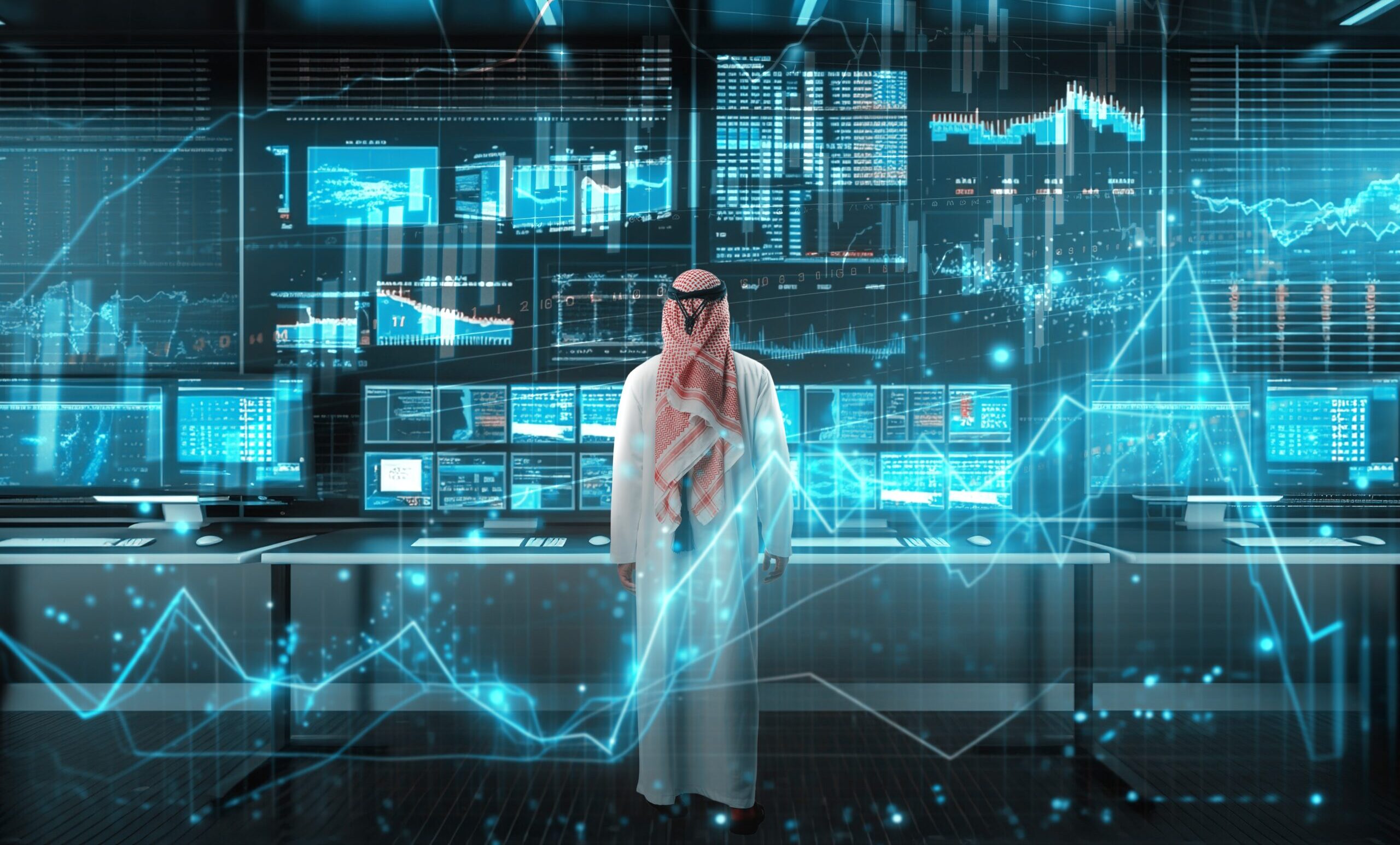UAE Leads Global Blockchain Innovation with Visionary Strategy

The United Arab Emirates has positioned itself at the forefront of the global blockchain revolution, implementing comprehensive strategies to establish the nation as a world leader in blockchain technology. Top Blockchain Courses, Through visionary leadership, strategic investments, and progressive regulatory frameworks, the UAE blockchain strategy is transforming its economy into a blockchain-powered digital ecosystem that serves as a model for nations worldwide.
Emirates Blockchain Strategy 2021-2031
The Emirates Blockchain Strategy 2021 aims to capitalize on blockchain technology to transform 50 percent of government transactions into a blockchain platform, representing one of the most ambitious government digitization initiatives globally. This decade-long strategy establishes the foundation for the UAE’s blockchain supremacy by focusing on three core areas: government efficiency, industry creation, and international leadership.
The strategy’s implementation spans across all seven emirates, with each emirate contributing unique strengths to the national blockchain ecosystem. Abu Dhabi leverages its position as the capital and financial centre, while Dubai serves as the innovation hub, attracting global blockchain enterprises and startups.
Key Strategic Objectives
The UAE’s blockchain transformation encompasses several critical objectives that position the nation as a global leader in distributed ledger technology:
- Government Transaction Digitisation: By 2031, approximately 50% of government transactions are expected to be transformed into blockchain, resulting in unprecedented transparency and efficiency in public service delivery.
- Economic Diversification: Moving beyond oil dependency by establishing blockchain-based industries, including fintech, supply chain management, healthcare records, and digital identity systems.
- International Positioning: Becoming the preferred destination for blockchain companies, investors, and talent through supportive regulatory environments and world-class infrastructure.
- Innovation Ecosystem Development: Creating comprehensive support systems for blockchain startups, research institutions, and technology development centres.
Dubai Blockchain Strategy
Launched by His Highness Sheikh Hamdan, the Dubai Blockchain Strategy is a result of collaboration between the Digital Dubai Office and the Dubai Future Foundation, demonstrating the highest levels of government commitment to blockchain adoption. The Dubai strategy operates on three strategic pillars that create a comprehensive framework for blockchain implementation:
Government Efficiency Pillar
Dubai’s government efficiency initiatives focus on streamlining public services through blockchain technology. The emirate has implemented blockchain solutions for visa applications, license renewals, and permit processes, reducing processing times by up to 70% while eliminating paperwork and bureaucratic delays.
Smart contracts automate routine government processes, ensuring consistent application of regulations and reducing human error. Digital identity systems built on blockchain provide citizens with secure, portable credentials that work across multiple government agencies and private sector partners.
Industry Creation Pillar
The industry creation pillar focuses on establishing Dubai as a global blockchain innovation center. The Dubai Future Foundation operates accelerator programs supporting blockchain startups with funding, mentorship, and access to government pilot programs for technology validation.
Major industries including real estate, logistics, healthcare, and financial services have adopted blockchain solutions developed in Dubai’s innovation ecosystem. The world’s first Property Token Ownership Certificate was launched in May 2025, demonstrating practical applications of blockchain in asset tokenization.
International Leadership Pillar
Dubai’s international leadership strategy positions the emirate as the premier destination for global blockchain companies and investors. The city hosts major blockchain conferences including the Future Blockchain Summit and Blockchain Life, attracting thousands of industry leaders and facilitating international partnerships.
Dubai Future Foundation established the Global Blockchain Council to explore, discuss current and future applications and organize transactions through the blockchain platform, creating a forum for global blockchain collaboration and standard-setting.
VARA and the Virtual Assets Framework
The Virtual Assets Regulatory Authority (VARA) represents the UAE’s commitment to creating world-class regulatory frameworks for blockchain and cryptocurrency activities. VARA’s collaboration with federal partners allows for seamless and efficient regulatory processes across the UAE’s virtual assets ecosystem.
Comprehensive Regulatory Approach
VARA’s regulatory framework addresses all aspects of virtual asset activities including:
- Licensing and Compliance: Comprehensive licensing procedures for virtual asset service providers, ensuring operational integrity and consumer protection while maintaining innovation-friendly policies.
- Anti-Money Laundering (AML): Robust AML frameworks that meet international standards while facilitating legitimate blockchain business activities and international transactions.
- Consumer Protection: Advanced consumer protection measures including segregation of customer assets, operational resilience requirements, and transparent disclosure standards.
- Cross-Border Cooperation: International regulatory cooperation agreements facilitating seamless operations for global blockchain companies operating in the UAE.
Multi-Jurisdictional Regulatory Hubs
The UAE’s regulatory approach leverages multiple specialised jurisdictions, each offering unique advantages for different types of blockchain businesses:
- Dubai International Financial Centre (DIFC): Focuses on institutional-grade financial services and large-scale blockchain implementations for traditional financial institutions and large corporations.
- Abu Dhabi Global Market (ADGM): Specialises in Islamic finance-compliant blockchain solutions and serves as a bridge between traditional Middle Eastern finance and global blockchain innovation.
- Dubai Multi Commodities Centre (DMCC): Centres on commodity trading and supply chain blockchain applications, leveraging Dubai’s position as a global trading hub.
Economic Impact and Market Development
The UAE facilitated over $25 billion in cryptocurrency transactions in 2022. With more than 1,000 cryptocurrency firms operating, this underscores the substantial economic impact of the nation’s blockchain strategy.

Financial Services Transformation
The UAE’s banking sector has embraced blockchain technology for cross-border payments, trade finance, and digital asset custody services. Major banks, including Emirates NBD, First Abu Dhabi Bank, and Dubai Islamic Bank, have launched blockchain-based services, reducing transaction costs and settlement times.
Central Bank Digital Currency (CBDC) initiatives position the UAE as a leader in the development of sovereign digital currencies. The UAE and Saudi Arabia’s joint central bank digital currency (CBDC) project for cross-border payments demonstrates regional blockchain integration and cooperation.
Real Estate and Asset Tokenisation
Dubai’s real estate sector is at the forefront of global innovation in property tokenization and blockchain-based ownership systems. Property Token Ownership Certificates represent ownership stakes in selected properties, with each token backed by verifiable legal claims to underlying assets.
Blockchain-based property transactions reduce costs, increase transparency, and enable fractional ownership opportunities for international investors. Smart contracts automate rental payments, maintenance schedules, and ownership transfers.
Supply Chain and Logistics Excellence
The UAE’s strategic position as a global logistics hub, combined with blockchain technology, creates unprecedented supply chain transparency and efficiency. Dubai’s ports and airports utilize blockchain for cargo tracking, customs clearance, and trade documentation.
Blockchain-based trade finance solutions reduce document processing times from days to hours while eliminating fraud and errors in international trade transactions. The integration of IoT sensors with blockchain creates real-time supply chain monitoring and automated compliance reporting.
Innovation Ecosystem and Talent Development
The UAE’s blockchain ecosystem comprises world-class educational institutions, research centers, and innovation hubs that attract global talent and foster technological advancements.
Educational Initiatives
Leading universities, including the American University of Sharjah. The United Arab Emirates University and Zayed University offer specialised blockchain and cryptocurrency programs. Professional certification programs equip working professionals with blockchain skills tailored to their respective industries.
Government-sponsored scholarship programs support. UAE nationals pursuing advanced degrees in blockchain technology at international universities, thereby ensuring the development of local talent alongside international recruitment.
Research and Development Centres
The UAE’s investment in blockchain research and development creates competitive advantages in emerging technologies. Research centres focus on:
- Quantum-Resistant Cryptography: Developing blockchain systems resistant to quantum computing attacks, ensuring long-term security for digital assets and government systems.
- Interoperability Solutions: Creating standards and protocols enabling seamless communication between different blockchain networks and traditional systems.
- Environmental Sustainability: Developing energy-efficient consensus mechanisms and sustainable blockchain infrastructure reducing ecological impact.
- Artificial Intelligence Integration: Combining AI and blockchain technologies for enhanced automation, predictive analytics, and intelligent contract execution.
Industry-Specific Blockchain Applications
Healthcare and Medical Records
The UAE’s healthcare sector utilises blockchain for secure patient data management. Pharmaceutical supply chain tracking, and the sharing of medical research data. Blockchain-based health records enable patients to control access to their medical information, facilitating seamless care coordination across healthcare providers.
COVID-19 vaccination certificates issued on blockchain demonstrate the technology’s utility for public health management and international travel documentation.
Energy and Sustainability
The UAE’s renewable energy initiatives incorporate blockchain technology for peer-to-peer energy trading, carbon credit verification, and tracking sustainable development projects. Solar panel installations in Dubai enable property owners to sell excess energy through blockchain-based marketplaces.
Blockchain-verified carbon offset programs ensure transparency. Accountability in the UAE’s net-zero emission goals, attracting international investment in sustainable development projects.
Tourism and Hospitality
Dubai’s tourism sector leverages blockchain for loyalty programs, secure booking systems, and authentic experience verification. Blockchain-based travel documents streamline visa processes and reduce fraud in the tourism industry. Smart contracts automate hotel bookings, event ticketing, and tour reservations, ensuring secure payments and effective dispute resolution mechanisms.
Future Roadmap and Vision 2031
The UAE’s blockchain roadmap extends beyond 2031. Blockchain Platforms, Establishing the foundation for continued global leadership in distributed ledger technology and digital asset innovation.
Next-Generation Blockchain Technologies
- Quantum Computing Integration: Preparing blockchain systems for the quantum computing era through quantum-resistant algorithms and hybrid classical-quantum systems.
- Internet of Things (IoT) Convergence: Expanding blockchain applications to IoT networks, enabling autonomous device interactions and micro-transactions.
- Artificial Intelligence Synergy: Developing AI-powered blockchain systems for predictive analytics, automated governance, and intelligent resource allocation.
